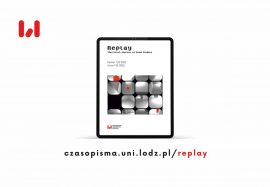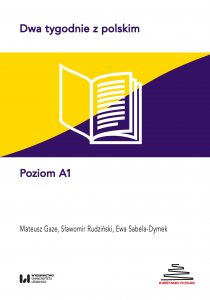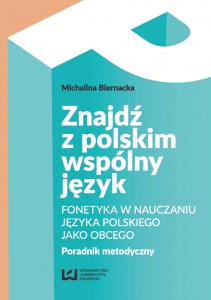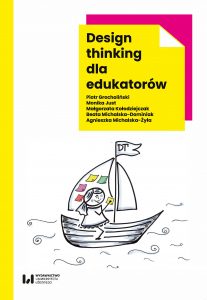Replay. The Polish Journal of Game Studies | Tom 9 Nr 1 (2022)
Opublikowano: 8 January 2024

Replay. The Polish Journal of Game Studies to pismo poświęcone interdyscyplinarnym studiom nad grami i odbiorcami gier, publikujące wyniki badań prowadzone z różnych perspektyw, między innymi kulturowej, socjologicznej i filozoficznej, ze szczególnym naciskiem na historię gier cyfrowych.
Zagadnienia podejmowane w periodyku dotyczą rozwoju i przeobrażeń medium gier wideo, zjawisk oraz praktyk towarzyszących uczestnictwu w rozgrywce, procesów zachodzących podczas interakcji pomiędzy grą i graczem, metodologii badań nad grami cyfrowymi, studiów przypadków ukazujących specyfikę rozwiązań mechanicznych i stylistycznych, a także znaczenia gier dla dzisiejszej kultury. Wśród poruszanych przez opublikowane artykuły problemów znajdują się między innymi: kwestia narracyjności gier, refleksja nad funkcjonowaniem wirtualnej przestrzeni, znaczenie interfejsu użytkownika, transmedialność gatunków, recepcja estetyki gier oraz ich artystycznego wymiaru.
Celem czasopisma jest stworzenie wspólnego, uniwersalnego języka dla badaczy gier cyfrowych, z którego mogliby korzystać wszyscy niezależnie od reprezentowanej dyscypliny. W związku z tym duży nacisk kładziony jest również na przyjmowanie prac dotyczących typologii gier cyfrowych i odpowiadającej im terminologii. Ponadto czasopismo dąży do rozwijania i popularyzowania wiedzy o grach, zarówno w kontekście teoretycznym (interdyscyplinarnym i specjalistycznym), jak i praktycznym (nowatorskie rozwiązania), a także bycia swoistym forum do wygłaszania opinii na temat gier oraz prezentowania i rozpowszechniania wyników badań empirycznych z tego zakresu, głównie osadzonych w kontekście gier cyfrowych.
Punktacja MEiN: 70 punktów (lipiec 2023)
W numerze (PDF):
(Post)pandemic academia, or rising from the ashes
Filip Jankowski
Computer games as a subject of psychological research – negative and positive aspects of gaming
Monika Paleczna
Computer games are an interactive form of entertainment that is popular with younger and younger players. Therefore researchers are actively seeking information on the consequences of pursuing this type of pastime. At the beginning, the researchers’ attention was focused mainly on the negative aspects of gaming. Nowadays, more and more benefits related to this activity are being indicated. In 2014, Granic, Lobel and Engels published an article on the benefits of playing computer games. The researchers focused on four areas: cognitive, motivational, emotional, and social. They wanted to inspire new research on mental health benefits of gaming by pointing to various research reports they selected. This paper aims to present the research directions explored in recent years by researchers who strive to describe the positive and negative consequences of gaming. I present the main directions and examples of research in these areas, highlighting the ambiguity of the current results. Problematic areas related to gaming include aggression and violence, addiction, weakening of social relations, experiencing undesirable emotions, sexualization, racial prejudice, and racial discrimination. The indicated opportunities and benefits are the strengthening of cognitive, motor, emotional, and social competences.
A gamebook enriched with the literary past – an analysis of the paragraph game “Dziady Część V. Dziady, które nie spieprzają” by Mikołaj Kołyszko
Julia Sowa
This article addresses issues showing the interconnectedness of the postmodern categories of pastiche and parody in relation to gamebooks. The first part of the text is a cross-section of the most important theoretical issues for the subsequent analysis of the gamebooks, starting with the presentation of their definitions, the most popular genres, and the basic division of such games. In relation to the issue of gamebooks, I also draw attention to the increasing intermediality of the contemporary works, as well as the importance of second-person narration. I also mention the genre of art games and briefly cite the work of one of their representatives, Anna Anthropy. I then discuss the postmodern categories of pastiche and parody and what they mean in relation to the past-present relationship. In the context of parody, I also mention Gérard Genette’s division of transtextual references between works. All the above-mentioned issues will be referred to when analysing the gamebook, which is a ‘semi-official’ continuation of Mickiewicz’s Dziady, combining a parodic take on folk culture with contemporary new media elements.
Recenzja książki Joanny Pigulak „Gra w film. Z zagadnień relacji między filmem i grami wideo”, Universitas, Kraków 2022
Katarzyna Prajzner
What is the relationship between computer games and cinema? Why computer games tend to employ camera movement, shot-selection and framing similar to that used in the cinema? To what extent, though, is it useful to look at games more closely in the light of cinema? These are the central organising questions of Joanna Pigulak’s 2022 monograph Gra w film. Z zagadnień relacji między filmem i grami wideo. The book focuses very much on film-like quality of graphics and genres of computer games and explores the extent to which the tools of film analysis can be applied to them. The book argues persuasively that likeness between cinema and games is the reason for calling games virtual reality, what makes the main framework somewhat debatable. Pigulak’s great strength is in analysing fragments of computer games and demonstrating how differences between cinema and games are allowing for defining new qualities of interactive texts even when fundamentally similar building blocks are involved.
Komentarze
Ten post dostępny jest także w języku: Polish





